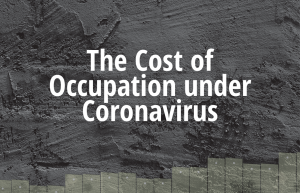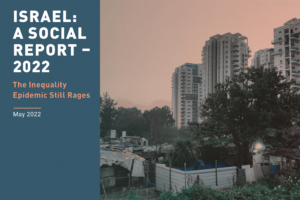The ongoing Israeli-Palestinian conflict and occupation exact a heavy toll from both sides. Palestinians pay the highest price, but we are also paying dearly. How? And how is this related to Coronavirus?
What does the occupation have to do with the Coronavirus pandemic? Ostensibly, nothing; in practice, however, a great deal.
Although the pandemic currently dominates the news, the occupation has not disappeared, but is alive and well. IDF troops are still encamped throughout the occupied territories and continue to patrol Palestinian towns and villages. Arrests have not ended. Closures continue, and not just to keep out the Coronavirus. The disease has also had some positive side effects, such as cooperation between medical personnel on both sides of the Green Line, both in the West Bank and Gaza Strip. But these are cooperative ventures between an occupier and the occupied, not between citizens of equal status in two neighboring states.
While other countries are experiencing some relief with the flattening of the Coronavirus curve, we in Israel continue to be impacted by the occupation and, more generally, by the Israeli-Palestinian conflict, which exacts a heavy toll, particularly during violent flare-ups. The next bout of violence is already brewing with Prime Minister Benjamin Netanyahu’s pledge to annex settlements – it is unclear how many – to the sovereign territory of Israel. This annexation, if it takes place, could draw the two sides into a brutal confrontation whose repercussions may be harsher than those of the Coronavirus.
At the time of writing, the extent and effects of the pandemic remain unclear. Nevertheless, efforts must be made to reach a political arrangement that is acceptable to both sides. A political agreement was urgent prior to the pandemic – and is urgent today as well.




